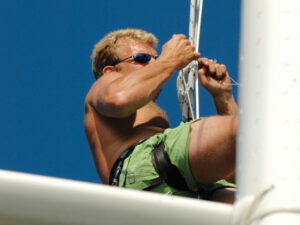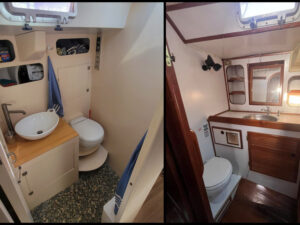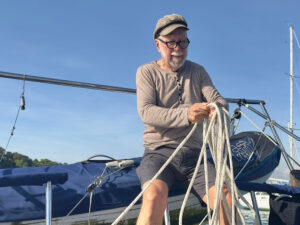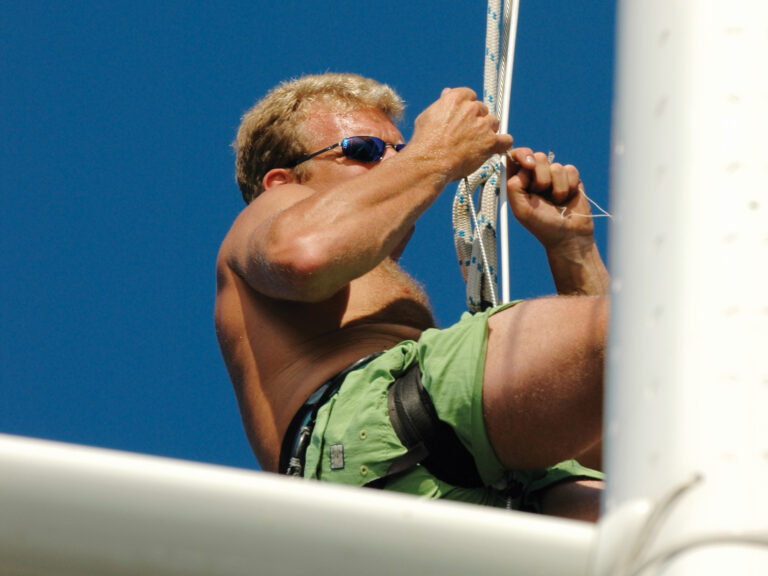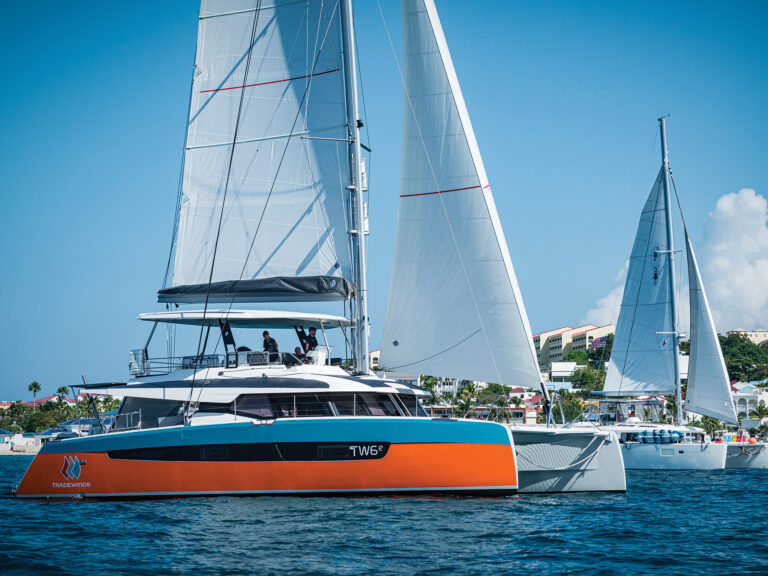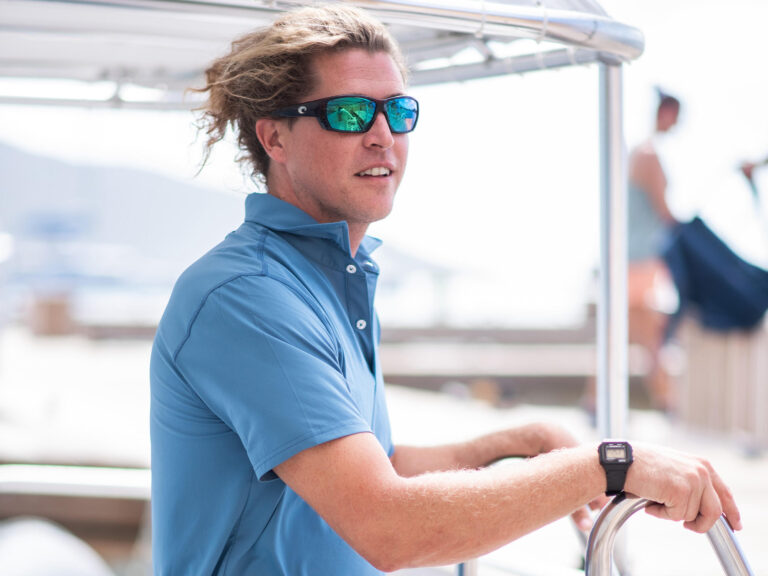Summer is almost here, and it wont be long before the marine science technicians at the Marine Safety Field Office (MSFO) on Cape Cod, Massachusetts, dust off their mountain bikes in preparation for a second season of duty patrolling the harbors and marinas on Cape Cod and surrounding islands.
Though some may scoff at calling it duty–who wouldnt want to ride along the bike paths and coastlines of Cape Cod on a picturesque summer day?–the bike patrols, which debuted last summer, have proven to be an effective way of promoting pollution-prevention awareness and safe-boating practices to the boating public.
“Since we started using the bikes, we’ve seen a 50 percent spike in pollution reports,” said Lt. Joel Roberts, the supervisor at the MSFO.
Bike patrols in Hawaii and on the West coast have been successful, Roberts said. “You have to do it where it fits,” he said. It fits like a glove on Cape Cod, which hosts millions of tourists every summer and sports a large boating population
Raising the visibility of the Coast Guards environmental-protection mission and pollution-prevention awareness are the main goals of the bike patrols, Roberts said. Petty Officer 2nd Class Jason Wishart, one of the members of the bike patrol, said he thinks the patrols are a perfect opportunity to raise visibility. When people see the Coast Guard riding around on bikes, they want to know why. This curiosity opens up the lines of communication, naturally segueing to discussions about pollution and boating safety.
With the education the bike patrol officers are offering–through brochures they carry in their saddlebags and face time–Roberts said boaters are now more aware of how to avoid polluting the water and know what to do if they see pollution. They are also not as tentative of reporting pollution as they once were. “A lot of marina managers are under the impression theyll be fined if a boat owner has a spill at their marina,” Roberts said. “Thats not the case. After we explain what our mission is and that they wont get into any trouble, they want to know how they can help.”
Roberts said that the uniform the bike-patrol officers wear makes them more approachable. The uniform consists of bike shorts and a golf shirt. “Before the bike patrols, interaction with the public was limited to enforcement activity,” Wishart said. “Now, its a friendlier atmosphere. We dont carry a gun or anything, so were not as intimidating to people.”
Patrolling on bikes gives Wishart and his partner, Petty Officer 3rd Class Bill Jensen, greater accessibility to some of the smaller communities on the Cape. Summer tourism brings congested traffic, and parking is at a premium. The bikes make navigating the Capes highways much more manageable.
Its also cheaper. Taking a vehicle on a ferry to Nantucket or Marthas Vineyard in the summer costs $155 each way. “We went to Nantucket 25 times last summer,” said Roberts. “Multiply that by $300, and there is considerable savings.” The $300 normally shelled out for one ferry ride more than covers the cost of a new bike and all the accessories.
The initial cost of outfitting the MSFO with two new bikes and accessories, and new uniforms for the patrol officers was about $2,200; $1,000 of that was paid by the commercial fisheries division at the First Coast Guard District in Boston. “We looked at it as another way to reach more people in remote fishing industry areas to help spread the word about safety and the availability of voluntary dockside exams,” said Ted Harrington of the districts commercial fisheries division.
“Fishermen are always asking questions about safety equipment and what they need to do to properly dispose of oily waste,” Roberts said. “They realize that in the long run its going to save them a lot of money if they do it right. Prevention is the key.”
Wishart said the bike patrols have also improved the relationship the Coast Guard has with the local police and fire departments and harbormasters. “They know what were doing out there and what were looking for,” Wishart said. “If something should ever happen, they know who to call.” Wishart said he is certain the bike patrols will take on new significance in this first post-Sept. 11th summer. He said he thinks people will want to know more than ever about the Coast Guards roles and missions, and whats being done about homeland defense and security.
The bike patrols will be the primary means of promoting maritime-domain awareness on Cape Cod, Roberts said. The public will be informed what they can do to help keep their communities not only clean, but also safe.
“I think it’s going to give the public a greater sense of safety,” Wishart said. “They’ll see the bike patrols as more of a security effort.”
With over 1,000 miles of shoreline around Cape Cod, Nantucket and Martha’s Vineyard, the MSFO’s bike patrol officers are not alone in their mission. Roberts said they are coordinating security patrols with Coast Guard Group Woods Hole, the Marine Safety Office in Providence, Rhode Island, and Air Station Cape Cod to get the greatest coverage and avoid duplicating their efforts. “We don’t want to be waving at each other as we do our patrols,” Roberts said.
There are no special requirements for the petty officers at the MSFO to be members of the bike patrols, other than the marine science training they receive through the Coast Guard. They just have to be able to ride a bike and have a willingness to talk to people. “Youve got to have an outgoing personality, because when someone notices you, theyll come up and start talking,” Roberts said. “The next thing you know, youre surrounded by a bunch of people.”
Roberts admits the command at the Marine Safety Office in Providence was skeptical, at first, of the idea of the bike patrols. “I dont have any problem with my guys enjoying themselves while they do theyre job,” Roberts said, but it took some effort to convince his commanding officer that the patrols would work. For everyone.
Roberts said he firmly believes the patrols are a good balance between the mission, wellness and morale. So far, he hasnt been wrong. “You get out in the sun and get some exercise,” said Petty Officer Jensen, Wisharts bike patrol partner. “And every time you tell someone about what you do, you learn more about what you do. You get a little bit better at it.”

